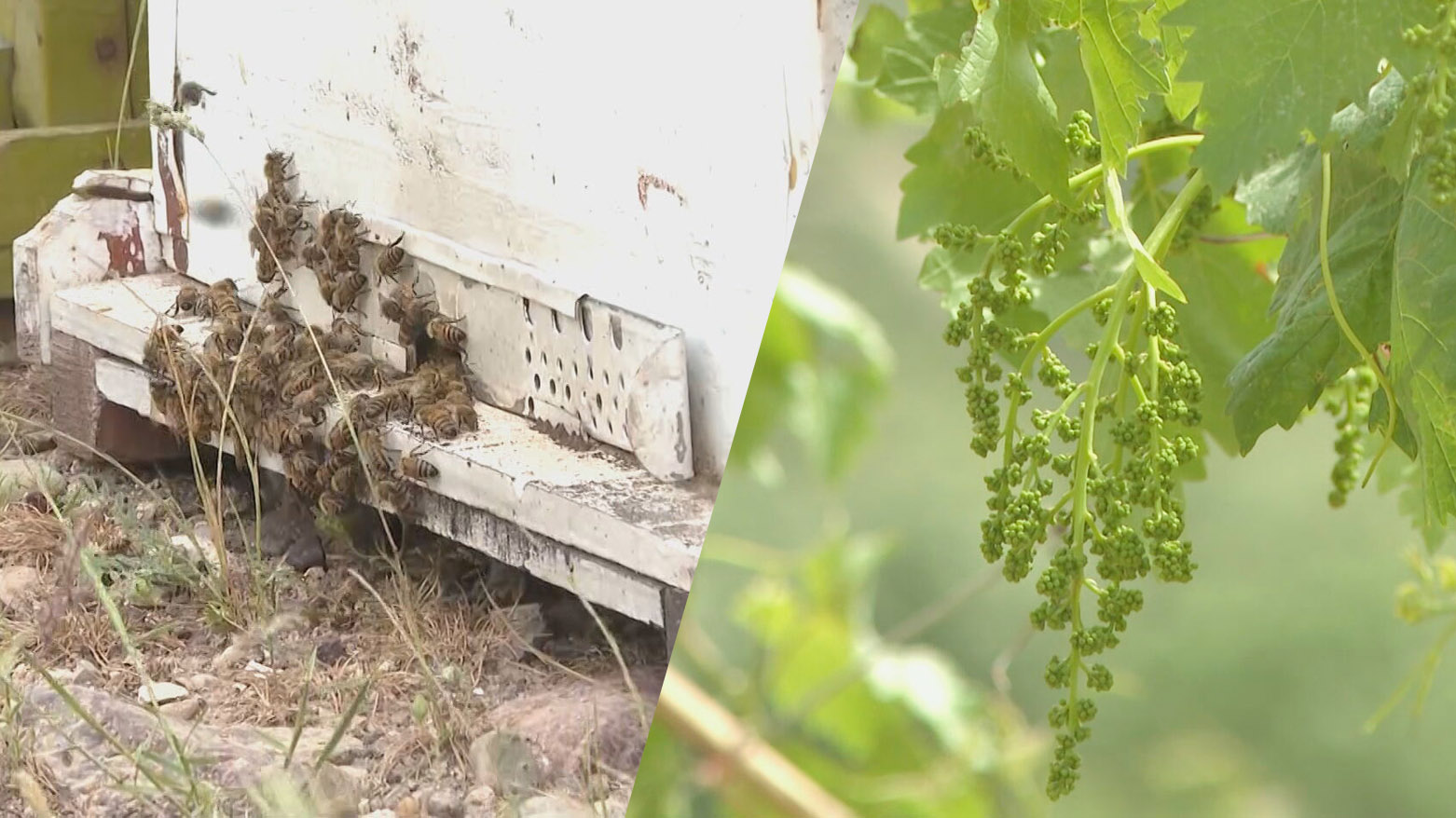'Dust Storm Has Damaged Everything—Grapes and Bees Hit Hard,' Kurdistan Farmers, Beekeepers Warn
A grape farmer said the dust storms had "damaged everything, especially grapes," halting their growth, while a beekeeper warned the dust "covered the flowers," preventing bees from extracting the nectar they rely on for food.

By Kamaran Aziz
ERBIL (Kurdistan24) — A devastating dust storm sweeping across the Kurdistan Region has inflicted heavy damage on agriculture, particularly on grape vineyards and honey production, as local farmers and beekeepers sound the alarm over their livelihoods.
In Barebhar village, nestled along the border of Dohuk province, farmers who had anticipated a fruitful season now face grim prospects. Mohammed Salim Barbahary, a prominent farmer known for cultivating over two thousand grape vines, shared his concerns with Kurdistan24 reporter Mahir Shingali. "The dust storms of the past few days have damaged everything, especially grapes, because they have halted their growth. They have also damaged spring vegetation. The recent rain would have been very beneficial for vegetation, but the dust storm had a negative impact and prevented further growth," Barbahary lamented.
The dust storm, which raged for two consecutive days, did not confine its destruction to Dohuk alone; it extended its reach across several provinces in the Kurdistan Region. Agricultural expert Amin Amedi, speaking to Kurdistan24, confirmed that the storm's impact was far-reaching. "The dust storm has affected the growth of vegetation, fruit production, bees, livestock, and even humans. It has been the most severe dust storm in recent years in terms of damage to agricultural products," Amedi said.
In addition to the significant loss of grape yields, the storm has severely disrupted beekeeping activities. Izzat Suleiman, a seasoned beekeeper from Akre, detailed the plight facing his community. "The dust storm has caused significant damage to the bees because dust has covered the flowers and vegetation. Now the bees cannot extract nectar from the flowers, which is their main food. The only solution is another wave of rain so that the flowers can grow again," he told Kurdistan24 reporter Ari Hussein.
The Akre district, located at the crossroads of Dohuk province, is home to more than 600 beekeepers managing around 22,000 beehives, most of which are maintained in natural surroundings. Karwan Jamal, head of the beekeeping department at the Akre Agricultural Directorate, underscored the fragility of the situation. "Bees are a very sensitive type of insect, and weather changes have a significant impact on their production, so beekeepers need to take some measures to provide food for their bees," Jamal advised.
The agricultural sector, already strained by erratic rainfall patterns and rising temperatures, now faces yet another setback. Last year, honey production in Akre district surpassed 35 tons. However, due to this year's combination of drought, dust storms, and ongoing weather instability, local authorities expect a marked decline in output.
Farmers and beekeepers alike are now pinning their hopes on another wave of rain—a natural remedy that could rejuvenate the battered vegetation and offer a lifeline to their dwindling crops and honey production.
Kurdistan24's correspondents Mahir Shingali and Ari Hussein contributed to this report.